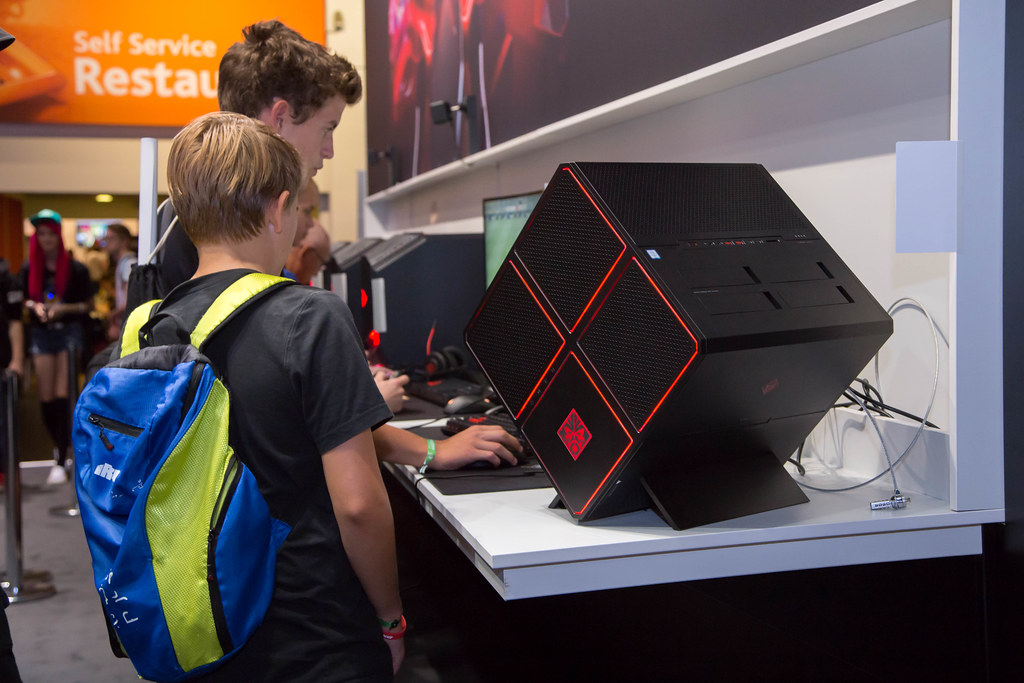
PC gaming, while welcoming new players every single day, has suffered a huge loss of popularity compared to consoles and mobile gaming in recent years. However, this doesn’t mean that it’s the end for gaming PCs.
https://mezila.maxconvtrk.com/visit/f5a37b48-2e38-4ea7-919b-a273d31d61a0?test=1&creative={creative}&keyword={keyword}&placement={placement}&adposition={adposition}
test 2: https://meta.org/track1.ph
For the last decade, high-performance PCs have been the pinnacle of gaming platforms. Even run-of-the-mill gaming PCs would overshadow the latest consoles as soon as they were released. But this changed in the last few years, with mobile gaming eclipsing both PC and console gaming in terms of revenue and end-users in 2016. At the same time, consoles have become more powerful and portable – creating less friction for casual gamers. Portability is also one of the major causes of the uptick in the popularity of the best gaming laptops today. Not to mention the excellent graphics display and cutting-edge processors that are almost on par with the best gaming PC rigs.
Although this may paint a bleak picture for the future of the gaming PC, it’s not what’s happening. On the contrary, experts highlight that the gaming sector of the PC market is what’s pushing the industry forward. From eccentric new designs to innovative developments under the hood, we’ll be looking at how manufacturers and engineers are taking the gaming PC forward.
Streaming-ready
Streaming platforms like Twitch have helped boost PC gaming in the past few years. Combined with the popularity of AAA PC games like Fortnite, streaming has solidified PC gaming as an internet culture. This is why Corsair and competitors are pushing so-called capture cards, as the name suggests, to capture and stream your gaming experience on platforms like Twitch and Facebook Gaming. For example, the recently released Elgato’s 4K 60 S+ will let you stream your game in 4K at 60fps when plugged into your PC. On the other hand, the introduction of cloud streaming services like Nvidia’s GeForce Now, Google Stadia, and Microsoft’s Project xCloud are also expected to be a threat to gaming PCs.
No motherboards
Despite PCs becoming more powerful and compact these days, engineers are envisioning a radical transformation of its design. These engineers are suggesting that we ditch the printed circuit boards (PCBs) altogether and instead use silicon as substrate material.
Motherboards that PCs use today are so far removed from what they were in the past. Advances made in manufacturing motherboards for PCs include the introduction of high density interconnect PCBs and aluminum PCBs. While HDI PCBs gave rise to more compact configurations, aluminum PCBs gave today’s PCs increased durability and better thermal conductivity. While the performance of CPUs and GPUs have been steadily increasing over the years, there’s still some lag in terms of scaling. Companies have turned, instead, to alternative solutions to boost performance with technologies like Intel’s new 3D interconnect and Foveros. Changing the material used for connecting chips would radically increase performance.
Integrated consoles and modular PCs
Today, you can easily swap out a gaming PC’s graphics card for a better gaming experience. But what if you could do this with all the other parts as well? Most of the new gaming PCs unveiled in the last CES, like Razer’s first gaming PC Tomahawk N1 and Intel’s Ghost Canyon, have features that make them more modular than ever. Increasingly, new gaming PCs have the capability to switch out the CPU and GPUs as well – future-proofing your PC for upcoming upgrades.
But some manufacturers have taken this a step further. Owing to the increasing competition from the console market, Origin PC’s recently unveiled Big O combines an Xbox One X, PlayStation 4 Pro, and Nintendo Switch in a Windows-powered gaming computer. This PC, which is available for purchase, is a nice salute to the possibilities of an integrated gaming experience that transcends platforms. It just might be that the future of gaming PCs is one that’s not in competition, but in combination with other gaming platforms that we enjoy today.